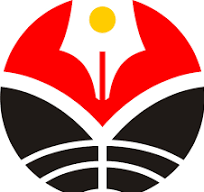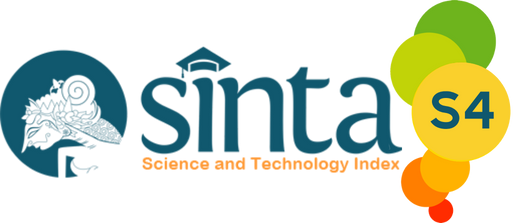Energy Literacy Profile of Vocational High School Teacher Candidates for Renewable Energy Engineering Expertise Program
Abstract
This study examines the energy literacy profile of engineering students as vocational high school teacher candidates for renewable energy engineering expertise programs in terms of 3 energy literacy domains: knowledge, attitudes, and behavior. This research uses a quantitative approach with a descriptive-comparative design, conducted on 135 engineering students from 3 study programs at the Indonesian University of Education. The results obtained are that the energy literacy knowledge of engineering students as vocational high school teacher candidates for renewable energy engineering expertise programs is low. Still, their energy literacy attitudes and behaviors are quite good. There was no statistically significant difference in energy literacy between the female and male student groups. In this study, it was known that students from 3 study programs received energy content from different courses. Their energy literacy results were influenced by differences in the range and depth of energy content provided by each study program. The results of this study can be a consideration for universities to develop energy literacy education and learning models and pay attention to the needs, content, and depth of energy content in each study program, especially study programs that are qualified as teachers candidates of vocational high school Renewable Energy Engineering Expertise Program.
Keywords
Full Text:
PDFReferences
Assali, A., Khatib, T., and Najjar, A. (2019). Renewable energy awareness among the future generation of Palestine. Renewable Energy, 136, 254–263.
https://doi.org/10.1016/j.renene.2019.01.007
Blasch, J., Boogen, N., Daminato, C., and Filippini, M. (2018). Empower the Consumer! Energy-Related Financial Literacy and its Socioeconomic Determinants. SSRN Electronic Journal, May. https://doi.org/10.2139/ssrn.3175874
Blasch, J., Boogen, N., Filippini, M., and Kumar, N. (2017). Explaining electricity demand and the role of energy and investment literacy on end-use efficiency of Swiss households. Energy Economics, 68, 89–102. https://doi.org/10.1016/j.eneco.2017.12.004
Blasch, J., Filippini, M., and Kumar, N. (2019). Boundedly rational consumers, energy and investment literacy, and the display of information on household appliances ଝ. Resource and Energy Economics, 56, 39–58. https://doi.org/10.1016/j.reseneeco.2017.06.001
Chen, S.-J., Chou, Y.-C., Yen, H.-Y., and Chao, Y.-L. (2015). Investigating and structural modeling energy literacy of high school students in Taiwan. Energy Efficiency, 8, 791–808. https://doi.org/10.1007/s12053-015-9327-5
Chen, S. J., Chou, Y. C., Yen, H. Y., and Chao, Y. L. (2015). Investigating and structural modeling energy literacy of high school students in Taiwan. Energy Efficiency, 8(4), 791–808. https://doi.org/10.1007/s12053-015-9327-5
Cotton, D., Shiel, C., and Paço, A. (2016). Energy saving on campus: A comparison of students’ attitudes and reported behaviors in the UK and Portugal. Journal of Cleaner Production, 129, 586–595. https://doi.org/10.1016/j.jclepro.2016.03.136
Derasid, N. A. C., Tahir, L. M., Musta’amal, A. H., Abu Bakar, Z., Mohtaram, N., Rosmin, N., and Ali, M. F. (2021). Knowledge, awareness, and understanding of the practice and support policies on renewable energy: Exploring the perspectives of in-service teachers and polytechnics lecturers. Energy Reports, 7, 3410–3427. https://doi.org/10.1016/j.egyr.2021.05.031
Dewaters, J. E., and Powers, S. E. (2011). Energy literacy of secondary students in New York State ( USA ): A measure of knowledge, affect, and behavior. Energy Policy, 39(3), 1699–1710. https://doi.org/10.1016/j.enpol.2010.12.049
DeWaters, J., and Powers, S. (2008). Energy literacy among middle and high school youth. Proceedings - Frontiers in Education Conference, FIE, 6–11. https://doi.org/10.1109/FIE.2008.4720280
DeWaters, J., and Powers, S. (2013). Establishing measurement criteria for an energy literacy questionnaire. The Journal of Environmental Education, 44(1), 38–55.
DeWaters, J., Powers, S., and Graham, M. (2007). Developing an energy literacy scale. ASEE Annual Conference and Exposition, Conference Proceedings. https://doi.org/10.18260/1-2--2076
Fang, X., Wang, L., Sun, C., Zheng, X., and Wei, J. (2021). The gap between words and actions : Empirical study on the consistency of residents supporting renewable energy development in China. Energy Policy, 148(PA), 111945. https://doi.org/10.1016/j.enpol.2020.111945
Fuchs, W. (2012). The New Global Responsibilities of Engineers Create Challenges for Engineering Education. Journal of Education for Sustainable Development, 6(1), 111–113. https://doi.org/10.1177/097340821100600117
Guven, G., and Sulun, Y. (2017). Pre-service teachers ’ knowledge and awareness about renewable energy. Renewable and Sustainable Energy Reviews, 80(January), 663–668. https://doi.org/10.1016/j.rser.2017.05.286
IRENA. (2020). Global Renewables Outlook: Energy Transformation 2050.
Kacan, E. (2015). Renewable energy awareness in vocational and technical education. Renewable Energy, 76, 126–134. https://doi.org/10.1016/j.renene.2014.11.013
Kalmi, P., Trotta, G., and Kazukauskas, A. (2017). The Role of energy literacy as a component of financial literacy: survey-based evidence from Finland. 15th IAEE European Conference, 21pp. https://www.eeg.tuwien.ac.at/conference/iaee2017/files/paper/381_Kalmi_fullpaper_2017-09-01_14-52.pdf
Kandpal, T. C., and Broman, L. (2014). Renewable energy education: A global status review. Renewable and Sustainable Energy Reviews, 34, 300–324. https://doi.org/10.1016/j.rser.2014.02.039
Lee, L., Chang, L., Lai, C., and Guu, Y. (2016). Energy literacy of vocational students in Taiwan. 4622(April). https://doi.org/10.1080/13504622.2015.1068276
Lee, L., Lee, Y., Altschuld, J. W., and Pan, Y. (2015). Energy literacy : Evaluating knowledge, affect, and behavior of students in Taiwan. Energy Policy, 76, 98–106. https://doi.org/10.1016/j.enpol.2014.11.012
Lee, L., Lee, Y., Wu, M., and Pan, Y. (2019). A study of energy literacy among nursing students to examine implications on energy conservation efforts in Taiwan. Energy Policy, 135(December 2017), 111005. https://doi.org/10.1016/j.enpol.2019.111005
Malkki, H., and Alanne, K. (2017). An overview of life cycle assessment (LCA) and research-based teaching in renewable and sustainable energy education. Renewable and Sustainable Energy Reviews Journal, 69(November 2016), 218–231. https://doi.org/10.1016/j.rser.2016.11.176
Martins, A., Madaleno, M., and Dias, M. F. (2020). ScienceDirect Energy literacy assessment among Portuguese university members : Knowledge, attitude, and behavior. Energy Reports, 6, 243–249. https://doi.org/10.1016/j.egyr.2020.11.117
Mills, B., and Schleich, J. (2012). Residential energy-efficient technology adoption, energy conservation, knowledge, and attitudes: An analysis of European countries. Energy Policy, 49, 616–628. https://doi.org/10.1016/j.enpol.2012.07.008
Ocetkiewicz, I., Tomaszewska, B., and Mróz, A. (2017). Renewable energy in education for sustainable development. The Polish experience. Renewable and Sustainable Energy Reviews, 80(September 2016), 92–97. https://doi.org/10.1016/j.rser.2017.05.144
Qazi, A., Hussain, F., Rahim, N. A., Hardaker, G., Alghazzawi, D., Shaban, K., and Haruna, K. (2019). Towards Sustainable Energy : A Systematic Review of Renewable Energy Sources, Technologies, and Public Opinions. IEEE, 7, 63837–63851. https://doi.org/10.1109/ACCESS.2019.2906402
Tabassum, Z., and Yasmin, S. (2017). Level of Awareness on Environment and Energy ; A Survey of the Freshmen at Habib University. 118–122.
UNESCO-UNEVOC. (2017). Greening Technical and Vocational Education and Training.
Yeh, S., Huang, J., and Yu, H. (2017). Analysis of Energy Literacy and Misconceptions of Junior High Students in Taiwan. https://doi.org/10.3390/su9030423
Zhang, J., and Zhang, Y. (2020). Examining the energy literacy of tourism peasant households in rural tourism destinations. Asia Pacific Journal of Tourism Research, 1665. https://doi.org/10.1080/10941665.2020.1741410
Refbacks
- There are currently no refbacks.








